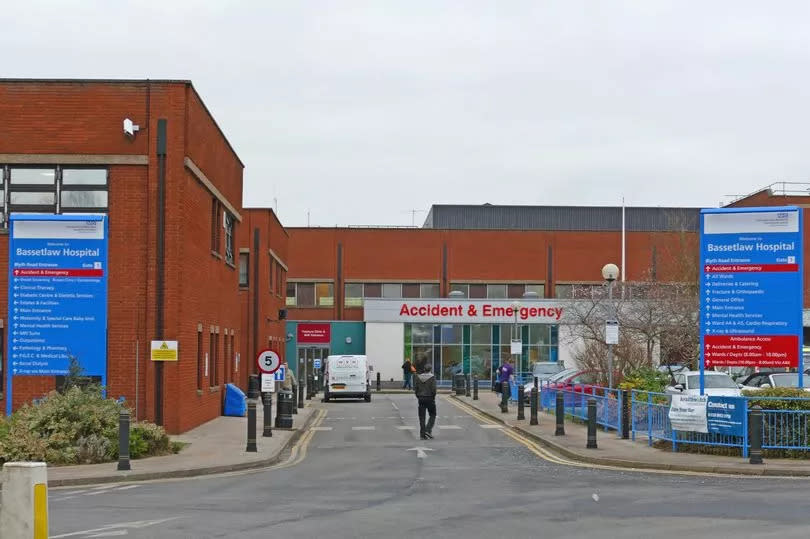Woman's brain damage was fault of Nottinghamshire hospital's negligence, judge rules

A woman's life-changing brain damage was the fault of a Nottinghamshire hospital's negligence during her birth in the late 90s, a judge has ruled. Elisha Woods, now 25, suffered brain damage after being starved of oxygen before her birth at Bassetlaw Hospital in Worksop on October 14, 1998.
A High Court judge ruled on June 11 that she would likely not have the life-changing injury if medical staff had not delayed her delivery. Ms Wood's mum Julie, who brought the case against Doncaster and Bassetlaw Teaching Hospitals NHS Foundation Trust on behalf of her daughter, attended the Worksop hospital on September 28, 1998 as she was leaking amniotic fluid.
Her lawyers argued medics failed to properly test Elisha, with a doctor not properly reacting to the unborn baby's tachycardia - a disorder where the heart beats faster than normal. High Court judge Justice Lambert heard evidence that the doctor should have repeated earlier monitoring of the baby's heartbeat and then delivered Elisha on September 29, rather than discharging her mother.
Get the latest news straight to your phone by joining us on WhatsApp
The delay resulted in Elisha suffering hypoxic-ischemic encephalopathy, a type of brain damage caused by a lack of oxygen to the brain. The Woods claimed that if she had been delivered before October 11, 1998 this harm could have been avoided.
The court was told the young woman has complex and extensive cognitive and behavioural difficulties because of the injury, making her "particularly vulnerable". It affects her memory, basic mental skills, and her understanding of language.
She also has mild problems with her ability to move properly. While the hospital trust did not dispute Elisha had suffered from low levels of oxygen, their legal representatives argued this did not cause the brain damage, instead stating this was likely to be genetic in origin.
However, Mrs Justice Lambert found Mrs Wood's argument to be more convincing. "I accept that reasonable management mandated induction of labour on or around 29 September 1998," the judge said, inviting the parties to draw up an order. Dr Nick Mallaband, acting executive medical director at Doncaster and Bassetlaw Teaching Hospitals, apologised for the negligent care and said staff would review the judgement for potential learnings.
“The safety of our patients and the delivery of excellent care is of paramount importance to us," Dr Mallaband said. “Whilst this particular delivery occurred in 1998, we will carefully review this judgment and consider any improvements and learning that can be applied to our present service.
"We, as a trust, accept the Court's ruling and extend our sincere apologies to the claimant and her family. The standard of care provided fell short of what they were entitled to expect."

 Yahoo News
Yahoo News 
